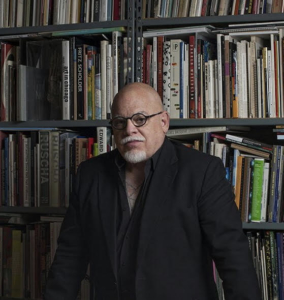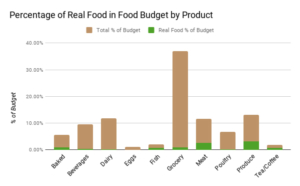New battery-powered landscape equipment reduces campus noise and pollution
Leaf blowers may seem somewhat comical: gangly plastic tubes that push air to corral bits of dead trees. But the pollutants they emit, the gasoline they waste and the hearing-damaging noises they produce are no laughing matter, so SOU is working to replace them and other gas-powered landscape tools with battery-powered versions.
Some communities have considered outright bans on gas-powered leaf blowers, in particular, but SOU landscape supervisor Zack Williams has initiated a more gradual phase-out.
“When I began working for the university in January of this year, we had several battery tools, and I’ve expanded our fleet,” Williams said. “As the technology and power output improves, we’ll continue adding until we can replace gas-powered tools completely – perhaps in another two to three years.
“The benefits are obvious: zero emissions and low noise.”
An hour of gas-powered leaf blower use produces pollution equivalent to about 1,100 miles driven in a 2017 Toyota Camry, according to the SORE (small off-road engines) Fact Sheet, published by the California Air Resources Board. Similarly, the automotive review and shopping website Edmunds did an emissions test in 2011 which showed that half an hour of leaf blower use created as much pollution as 3,887 miles driven in a 2011 Ford Raptor.
Gas-fueled blowers, trimmers, mowers, chainsaws and other landscape equipment create environment-damaging emissions due to their engine design. A 2017 New York Times article, “On Banning Leaf Blowers,” said the two-stroke engines they use “are light enough to carry but produce significant exhaust and noise.”
“The gas and oil mix together, and about a third of it does not combust,” the Times story said. “As a result, pollutants that have been linked to cancers, heart disease, asthma and other serious ailments escape into the air.”
The story also cited a report from the U.S. Centers for Disease Control and Prevention that said as little as two hours of unprotected exposure to a leaf blower can lead to permanent hearing loss.
Williams – who oversees landscape maintenance as part of SOU’s Facilities, Management and Planning Department – said battery-powered tools address nearly all problems associated with the gas-powered versions. They cut down the noise to non-damaging levels and release no emissions to harm the environment, students or others. The batteries are also easy to use.
“Wall-mounted chargers are at our shop,” Williams said. “We remove battery packs from the tools and plug them in to charge.
“They are high amp-hour output lithium-ion batteries that last for many years,” he said. “At the end of their life cycle they are returned to the manufacturer for recycling – but that hasn’t occurred yet, and some of our batteries are almost five years old.”
One downside to battery-powered equipment is that it isn’t as powerful as gas-powered counterparts and there are some instances where that power is a necessity.
“We have not converted all of our landscape power tools to electric … this category of tool is not yet comparable to gas-powered equipment in performance, and we use a mix of both depending on the needs of the project/site,” Williams said. “We’ll favor battery-powered tools if noise is a concern, or if the job is appropriately sized. We use battery-powered chainsaws for tree pruning, but will opt for larger gas saws for tree removals or large limbs.”
There’s also the matter of cost – Williams said battery-powered equipment is at least double the cost of gas-powered equipment. The gradual conversion won’t add to students’ expenses or take away from other SOU departments or services, but has required a shift in Williams’ budget and that of Facilities, Management and Planning.
Williams expects the issues with battery-powered equipment to be resolved over time.
“Like electric cars, as market adoption increases, and technology improves, the price will come down,” he said. “When electric vehicles can be purchased for the same price as conventionally-fueled vehicles, we’ll see the same situation with smaller tools.”
Even now, he said, the benefits of battery-powered tools outweigh their shortcomings.
“I think (the adoption of electric tools) meshes well with our values – low-noise, zero emissions,” Williams said. “SOU’s sustainability initiatives certainly call for this.”
Story by Blair Selph, SOU Marketing and Communications student writer













